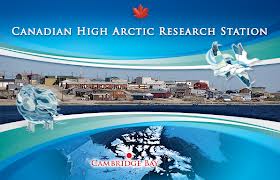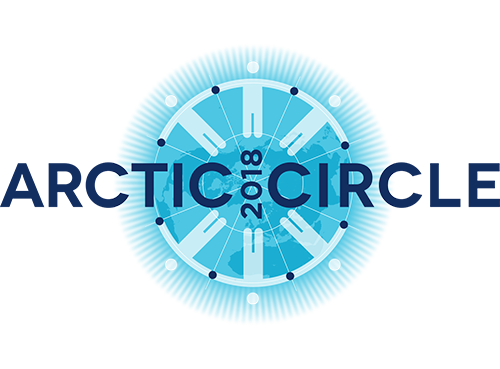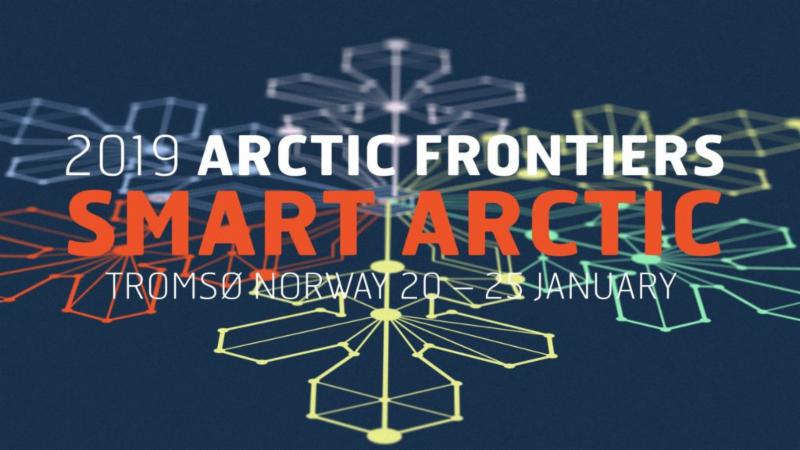|
|
|
|
|
|
|
|
Media
 The Jewel of Canadian Arctic Research Remains Under Wraps. The Jewel of Canadian Arctic Research Remains Under Wraps. When the low-lying sun strikes the Canadian High Arctic Research Station in Cambridge Bay at this time of year, it looks like a big, shiny, copper-colored treasure chest. But, unless you're working at CHARS, you can't see what's inside this striking $200-million complex. The main science building, at 7,900 square meters, with its stunning gems of Inuit art and interior design, part of which is supposed to be open to the public, remains closed. Arctic Today
An Icebreaker Just Tested a First-of-Its-Kind System That Can Slurp Up Oil Spills in the Frigid Arctic. A Finnish icebreaker has conducted an oil spill response exercise in the Baltic Sea, testing a new, inbuilt oil recovery system - a first for an icebreaker. The vessel, Polaris, can collect 1,400 cubic meters (49,000 cubic feet) of oil, even in harsh and icy weather conditions. The Polaris operates mainly in the Baltic but can also reach large parts of the Arctic Ocean during the summer months. Business Insider
Giant Gas Craters Discovered at the Bottom of the Barents. The otherwise flat sea floor between the island archipelago of Svalbard and Finnmark, Norway's northernmost county, is pocked by massive craters that were only discovered in the 1990s. Now, scientists at the Centre for Arctic Gas Hydrates, Environment and Climate (CAGE) at UiT - The Arctic University of Norway, have collected new geophysical data on the craters in the area. Science Nordic
 Japan Joins Race to Develop Arctic Resources. Japan Joins Race to Develop Arctic Resources. With both Russia and China expanding their presence in the Arctic, Japan looks to ensure it also has a voice in the development of the resource-rich but environmentally sensitive region. When Foreign Minister Taro Kono attends the Arctic Circle Assembly, set for Oct. 19 to 21 in Iceland, he is expected to announce that the government will encourage Japanese companies to invest in the region's energy resources. Nikkei Asian Review
Arctic Sea Ice Minimum Continues Downward Trend, with Implications Beyond the Arctic. At 1.77 million square miles, it ties with 2008 and 2010 for the sixth lowest minimum in the nearly 40-year satellite record. "It's a fair amount above our record low, which was a really extreme year in 2012, but it's much lower than what used to be normal conditions in the '80s and '90s," said Walt Meier, who analyzes sea ice for the National Snow and Ice Data Center in Colorado. Alaska Public Radio
|
|
Future Events
The second Arctic Biodiversity Congress is hosted by the Conservation of Arctic Flora and Fauna (CAFF), the biodiversity working group of the Arctic Council, and the Ministry of the Environment, Finland. The second Arctic Biodiversity Congress will build on the success of the first Congress, held in 2014 in Trondheim, Norway, and will bring together scientists, policymakers government officials, Indigenous representatives, Traditional Knowledge holders, industry, non-governmental organizations, and others to promote the conservation and sustainable use of Arctic biodiversity.
Canada Permafrost Association Annual General Meeting, October 10-12, 2018 (Whitehorse, Yukon Canada). The Canada Permafrost Association (CPA) is being formed to address the multidisciplinary nature of permafrost-- bridging natural and social sciences, engineering, and governments. A central goal of the CPA is to assist in the transfer of knowledge between disciplines and across various demographics. This will better equip Canadians to respond to permafrost-related problems. As the inaugural meeting of the CPA, participants will take part in some of the formative discussions of the Association. In addition, there will be opportunities for participants to present research findings, keynote addresses and a field trip.
 Arctic Circle Assembly, October 2018 (Reykjavik, Iceland). The annual Arctic Circle Assembly is the largest annual international gathering on the Arctic, attended by more than 2000 participants from 60 countries. It is attended by heads of states and governments, ministers, members of parliaments, officials, experts, scientists, entrepreneurs, business leaders, indigenous representatives, environmentalists, students, activists and others from the growing international community of partners and participants interested in the future of the Arctic. Arctic Circle Assembly, October 2018 (Reykjavik, Iceland). The annual Arctic Circle Assembly is the largest annual international gathering on the Arctic, attended by more than 2000 participants from 60 countries. It is attended by heads of states and governments, ministers, members of parliaments, officials, experts, scientists, entrepreneurs, business leaders, indigenous representatives, environmentalists, students, activists and others from the growing international community of partners and participants interested in the future of the Arctic.
Arctic Science Forum Associated with the 2nd Arctic Science Ministerial, October 25, 2018 (Berlin, Germany and via webcast). How vulnerable and how resilient are nature and the people of the Arctic region? How well do we understand the regional and global dynamics which are driving change in the Arctic? What impact will change in the Arctic have on us? These and other questions are the focus of this two-day conference. It will take interdisciplinary research in the Arctic to gain an understanding of past and future processes - a complex and cost-intensive venture. This makes an international network of Arctic research so important for delivering better results. Cooperation in research, the exchange of data, collaborative observation and monitoring schemes - international cooperation is imperative in research on the Arctic.
Only the Science Forum, on October 25th, will be webcast. The Arctic Ministerial, on October 26th, will NOT be webcast.
Maritime & Arctic Security & Safety Conference (MASS18) "Arctic Technology" November 15-16, 2018 (Newfoundland & Labrador Canada). Now in its sixth year, MASS has gained an international reputation as a must-attend event to gain a wide perspective on challenges, opportunities and policies related to the Arctic and North Atlantic maritime environments. The aim of this Government of Canada and the Government of Newfoundland and Labrador supported international conference is to promote stakeholder collaboration, technological innovation, harsh environment research & development, and world-class education efforts that are contributing to both Maritime and Arctic issues. This two day conference will draw a diverse group of speakers and attendees representing government, military, Canadian and U.S. Coast Guard, industry, academic leaders, Northern Leaders, research and other key stakeholders. We hope you can join us to be a part of this important dialogue
American Geophysical Union Fall meeting, December 10-14, 2018 (Washington, DC USA). The AGU 2018 Fall Meeting will mark another dynamic year of discovery in Earth and space science, serve as the advent of AGU's Centennial year, and provide a special opportunity to share our science with world  leaders in Washington, D.C. As the largest Earth and space science gathering in the world, the Fall Meeting places you in the center of a global community of scientists drawn from myriad fields of study whose work protects the health and welfare of people worldwide, spurs innovation, and informs decisions that are critical to the sustainability of the Earth.
ArcticNet: Annual Scientific Meeting 2018, December 10-14, 2018 (Ottawa, ON Canada). Canada's North is experiencing unprecedented change in its sea and terrestrial ice, permafrost and ecosystems under the triple pressures of climate change, industrialization and modernization. The impacts of these pressures can be seen on food and energy security, shipping, sovereignty, northern community health and well-being, and sustainable development and resource exploitation. All these issues have brought the North to the forefront of national and international agendas. Building on the success of its previous Annual Scientific Meetings and International Arctic Change Conferences, the Arctic Network of Centers of Excellence announces the 14th ArcticNet Annual Scientific Meeting.
 Arctic Frontiers, January 20-25, 2019 (Tromso, Norway). The Arctic Frontiers is a global scientific conference on economic, societal, and environmental sustainable growth. This year's theme will be "Smart Arctic," with a pan-arctic emphasis, and an effort to build new partnerships across nations, generations and ethnic groups. Arctic Frontiers provides a forum for dialogue and communication between science, government and industry. The plenary program will have five main sessions: State of the Arctic, Blue Growth, Smart Solutions, Bridging the Gap, and Arctic business prospects. An abstract-driven science program will address Plastics in the Ocean, the Future of Governance and Handling Vulnerability in Arctic Ecosystems, State of the Arctic and A Smart Arctic Future.
 of the AAG includes over 8,500 geographers converging from the U.S., Canada, and nearly 60 other countries in a typical year including geographers, GIS specialists, environmental scientists, and other leaders for the latest in research and applications in geography, sustainability, and GIScience. of the AAG includes over 8,500 geographers converging from the U.S., Canada, and nearly 60 other countries in a typical year including geographers, GIS specialists, environmental scientists, and other leaders for the latest in research and applications in geography, sustainability, and GIScience.
|
|

  
4350 N. Fairfax Drive, Suite 510
Arlington, VA 22203, USA
External links in this publication, and on the USARC's World Wide Web site ( www.arctic.gov) do not constitute endorsement by the US Arctic Research Commission of external Web sites or the information, products or services contained therein. For other than authorized activities, the USARC does not exercise any editorial control over the information you may find at these locations. These links are provided consistent with the stated purpose of this newsletter and the USARC Web site.
|
|
|
|
|
|
|
|
|
 The Jewel of Canadian Arctic Research Remains Under Wraps. When the low-lying sun strikes the Canadian High Arctic Research Station in Cambridge Bay at this time of year, it looks like a big, shiny, copper-colored treasure chest. But, unless you're working at CHARS, you can't see what's inside this striking $200-million complex. The main science building, at 7,900 square meters, with its stunning gems of Inuit art and interior design, part of which is supposed to be open to the public, remains closed. Arctic Today
The Jewel of Canadian Arctic Research Remains Under Wraps. When the low-lying sun strikes the Canadian High Arctic Research Station in Cambridge Bay at this time of year, it looks like a big, shiny, copper-colored treasure chest. But, unless you're working at CHARS, you can't see what's inside this striking $200-million complex. The main science building, at 7,900 square meters, with its stunning gems of Inuit art and interior design, part of which is supposed to be open to the public, remains closed. Arctic Today Japan Joins Race to Develop Arctic Resources. With both Russia and China expanding their presence in the Arctic, Japan looks to ensure it also has a voice in the development of the resource-rich but environmentally sensitive region. When Foreign Minister Taro Kono attends the Arctic Circle Assembly, set for Oct. 19 to 21 in Iceland, he is expected to announce that the government will encourage Japanese companies to invest in the region's energy resources. Nikkei Asian Review
Japan Joins Race to Develop Arctic Resources. With both Russia and China expanding their presence in the Arctic, Japan looks to ensure it also has a voice in the development of the resource-rich but environmentally sensitive region. When Foreign Minister Taro Kono attends the Arctic Circle Assembly, set for Oct. 19 to 21 in Iceland, he is expected to announce that the government will encourage Japanese companies to invest in the region's energy resources. Nikkei Asian Review


